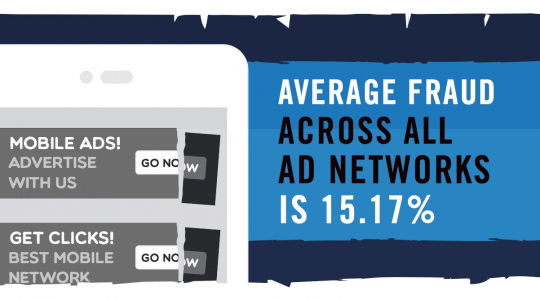
Photo by Andre Francois on Unsplash
Did you know that blockchain technology was invented to be the public transaction ledger for the first-ever cryptocurrency, bitcoin? And that it was invented in 2008 by a still-unidentified person (or group of persons) using the pseudonym Satoshi Nakamoto? If you didn’t, you’re not alone.
Even though cryptocurrency and blockchains have been around since 2009, they weren’t household terms until 2017’s bitcoin price run, during which they exploded in popularity. And when bitcoin reached $68,000 in November 2021, the whole world took notice. People who had never even heard of cryptocurrency were suddenly purchasing and trading bitcoin. Now, both are buzzwords heard in the halls of venture capitalists, startup incubators, tech companies, and others. So while the long-term implications of that 2017 run are unknown, cryptocurrency and blockchain technology are already making an impact in affiliate and performance marketing.

2017’s bitcoin run had people buying, selling, and hodling bitcoin — and of course, there’s a meme for that. Source: Know Your Meme
In this blog post, we’ll review the facts about cryptocurrency, how it’s used, and crypto trends we’re seeing in affiliate marketing and the tech world at large.
What Is Cryptocurrency?
A cryptocurrency is a decentralized digital currency not regulated by any national government, as with the dollar or euro. It’s designed to be more secure than cash because it’s impossible to physically lose. Presumably, it’s also impossible to be stolen or faked due to its strong encryption, or the way it’s verified through cryptography, and its public history, or its distributed record in a blockchain.
A cryptocurrency, crypto-currency, or crypto is a digital currency designed to work as a medium of exchange through a computer network that is not reliant on any central authority, such as a government or bank, to uphold or maintain it. – Wikipedia
As the digital world continues to conquer parts of the physical, some experts predict coins and paper money will become history. That would leave the market primed for digital (and virtual) forms of currency.
The most popular cryptocurrency is currently bitcoin, although there are more than 10,000 other cryptocurrencies currently in existence. Bitcoin became popular in 2018 after the price skyrocketed to over $20,000 per bitcoin; in 2021, as prices surged past $68,000, it became a household topic, attracting traders, investors, the media, and the general public. Most cryptocurrencies are extremely volatile, however; in the first few months of 2022, bitcoin’s price has fluctuated between $35,000 to $45,000.
How Is Cryptocurrency Used?
When you purchase cryptocurrency, you are given a digital key with the address of that currency, which you can use to validate or approve transactions. Buyers can purchase bitcoin and store it in cryptographic wallets. Similar to the stock market, the value of cryptocurrency fluctuates as people purchase and sell it.
Emerging Trends in Affiliate Marketing
As marketers, we find cryptocurrency particularly interesting when it comes to affiliate programs and performance-based marketing. Here are a few of the emerging trends we’re seeing:
Cryptocurrency Affiliate Programs
Cryptocurrency isn’t fully accepted on advertising platforms like Facebook and Google, so affiliate marketers are taking it upon themselves to spread the good word. New crypto trading platforms with affiliate programs are popping up all the time.
Binance, for example, is a trading platform that launched in 2017 and became the biggest trading platform for cryptocurrency in terms of traffic. They pay 20-40% lifetime trading commission fees for each new customer referred. Apparently, a few people have taken advantage of the program to become millionaires. Other popular affiliate programs include Coinbase, CoinPayments, Changelly, LedgerWallet, and Purse. (Head over to this post for more on crypto affiliate programs and our predictions for the industry.)
Access to New Audiences and Funding
Not everyone has access to banks. But anyone who has access to the internet can feasibly also access cryptocurrency. Blockchain.com, for example, has become one of the most popular platforms to invest in cryptocurrencies because it’s available to consumers in nearly 200 countries around the world. That accessibility is already giving rise to startups being funded by cryptocurrency, allowing new companies to emerge from crowdfunding, and providing the opportunity to people around the world who might not otherwise have investors.
Lower Fees and Processing Times for Networks
Most processing companies charge at least a few percentage points in fees, since one company completes the transaction process and can claim credit for doing so. With digital currencies, no one entity owns the process or transaction record, which means cryptocurrencies are often exchanged for little or no transaction fees. (Fees are mainly set by how much network capacity is available for the transaction, but the currency holder can also set a higher fee if desired.)
By reducing processing time and putting more money in the hands of publishers, bitcoin and the like could cause a ripple effect of more supply opportunities across the entire industry.
Faster, Safer, More Transparent Transactions
Proponents advocate that digital currencies make buying and selling safer for everyone, because cryptography ensures all financial transfers are secured, and the creation of additional units is controlled. In theory, this means each party involved in an exchange is working off of the same unbiased information; both sides have no reason to doubt accuracy or authenticity.
In addition, payments made via cryptocurrency can’t be canceled or reversed for fraudulent purposes, which protects sellers, publishers, and affiliates alike.
However, this doesn’t mean all crypto investments are safe — not by a long shot. Investors who buy in to new coins or too-good-to-be-true projects run the risk of losing their money on a bet that may not pan out. Or they may just get scammed, like what happened in 2021 with Squid Game coin. Buyers who planned to profit off the popularity of the contemporary (but not related) Netflix show instead found themselves left with nothing after the coin’s creators withdrew all $3.36 million invested and disappeared.
Increased Trust
Paying with credit cards or debit cards requires entering sensitive information that can be stolen. But cryptocurrency can be sent directly to the recipient with no other information other than the amount sent. This has proven to be both a good thing (more security and less fraud) and a potentially bad thing (more anonymity and the growth of black markets). Which side will win out? We’ll have to wait and see.
In Cryptocurrency We Trust
Ultimately, like any new technology, it remains to be seen whether cryptocurrency is embraced by the world, or fails to reach critical mass. We’re guessing the former. We’d love to hear from you — do you see cryptocurrency making long-standing change in the affiliate marketing industry? How have you seen it take hold already?
This post was originally published in October 2018 and has been updated for accuracy and comprehensiveness.
Author
Becky is the Senior Content Marketing Manager at TUNE. Before TUNE, she handled content strategy and marketing communications at several tech startups in the Bay Area. Becky received her bachelor's degree in English from Wake Forest University. After a decade in San Francisco and Seattle, she has returned home to Charleston, SC, where you can find her strolling through Hampton Park with her pup and enjoying the simple things in life.




Leave a Reply
You must be logged in to post a comment.